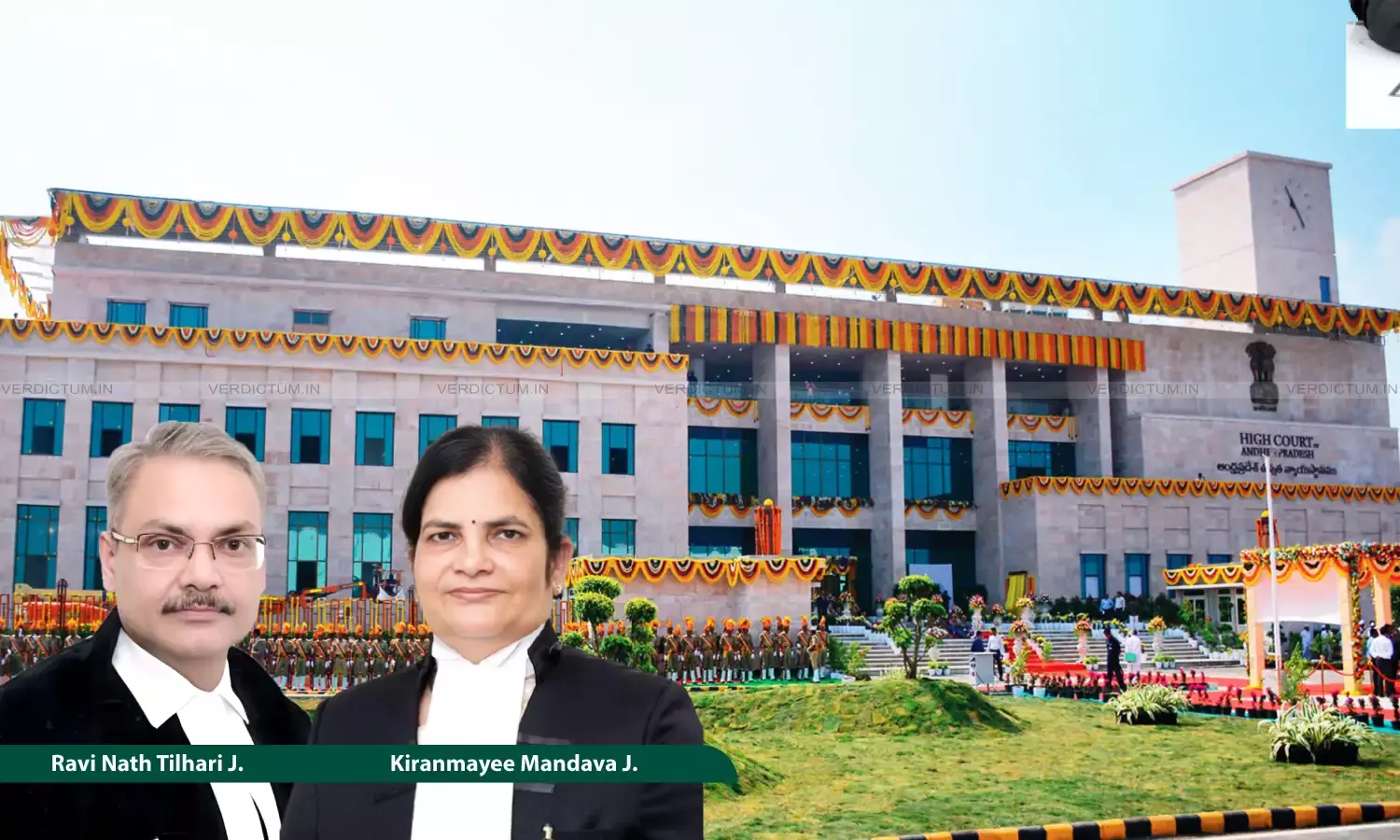Divorce Petition Can Be Converted Into One By Mutual Consent Even At Appellate Stage: Andhra Pradesh High Court
The Andhra Pradesh High Court allowed an Appeal filed by the husband against the Judgment of the Family Court, which dismissed his Petition.

Justice Ravi Nath Tilhari, Justice Kiranmayee Mandava, Andhra Pradesh High Court
The Andhra Pradesh High Court held that a Divorce Petition under Section 13(1)(ia) of the Hindu Marriage Act, 1955 (HMA) can be converted into Divorce Petition by Mutual Consent under Section 13-B of HMA, even at the appellate stage.
The Court held thus in an Appeal filed by the husband against the Judgment of the Family Court, which dismissed his Petition.
A Division Bench comprising Justice Ravi Nath Tilhari and Justice Kiranmayee Mandava observed, “Thus, considered and in view of the aforesaid judgments, we hold on Point-A that the petition for divorce filed under Section 13(1)(ia) of the Act, 1955 can be allowed to be converted into divorce petition by mutual consent under Section 13-B of the Act, 1955, even at the appellate stage. On Point-B, we hold that the provisions of Section 13-B(2) of the Act, 1955 providing for cooling off period is directory and in the facts and circumstances of a case, the statutory period can be waived of.”
Advocate V. Raghu appeared on behalf of the Appellant/husband while Advocate B. Venkatesh Nayak appeared on behalf of the Respondent/wife.
Brief Facts
The Appellant/husband filed a Petition before the Family Court, seeking to dissolve the marriage under Section 13(1)(ia) of the HMA. His marriage was solemnized with the Respondent/wife in 1996 as per the caste custom and usage of both the parties. They were blessed with a female child. As per the husband’s pleadings, his wife went to her parents’ house along with child in 1997 and since then she did not join him, except on one occasion in 1998. He pleaded mental agony, cruelty and that the wife did not join the company of the husband. His wife filed a counter denying the averments of the Petition, except the relationship between both parties. She pleaded the alleged husband’s intimacy with his colleague and his frequent visits.
However, she pleaded that she was not willing for divorce and she was ready to join the husband. Any mental and physical cruelty by her was denied. The husband filed the rejoinder and denied any illegal intimacy with his colleague. The allegations made by the wife were said to be unfounded and intended to defame the husband, amounting to character assassination. Referring to the evidence on record, finding was recorded that the behaviour of the husband with his colleague, caused mental agony to the wife. Hence, the Family Court dismissed the husband’s Petition and refused dissolution of marriage. Being aggrieved, he approached the High Court.
Reasoning
The High Court in view of the above facts, said, “When the marriage has been broken down and the parties are living separately for the last more than 27 years, we allow the application to amend the petition for divorce under Section 13(1)(ia) of the Act to make it under Section 13-B by mutual consent, we are satisfied in the facts of the present case that the marriage has shattered beyond repair. The cooling off period of six months deserves to be waived.”
The Court noted that as there are no chances of reconciliation and reunion, the parties are living separately since 1998 and in spite of the fact that the Petition filed by the husband for divorce was dismissed still they are not able to reunite, as also that they have entered into a compromise and filed applications for divorce by mutual consent, there is no purpose, under the circumstances of this case, directing the parties to wait for six months cooling off period, to obliviate and continue their miseries.
“The petition for divorce deserves to be allowed by granting divorce by mutual consent, waiving of the waiting/cooling period, of six months, under Section 13B(2) of the Hindu Marriage Act, 1955. … The marriage between the appellant and the respondent is dissolved under Section 13-B of the Hindu Marriage Act with effect from the date of this judgment”, it concluded.
Accordingly, the High Court allowed the Appeal, set aside the Family Court’s Judgment, and dissolved the marriage.
Cause Title- ABC v. XYZ (Case Number: C.M.A.No.651 OF 2007)


